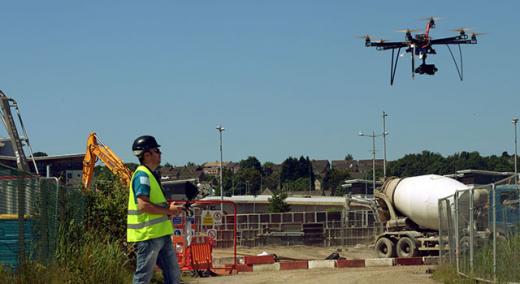Aquiline Drones Corp. (AD) quips that, “All roads lead to AI.” Recent developments in artificial intelligence (AI) integration make that statement hard to argue against, and the astute application of AI to AD’s cloud-based services also makes a lot of sense. So, smart drones are a real thing. But are they smart enough to solve problems and create a return on investment?
|
ADVERTISEMENT |
I’ve already written about AI in relation to the supply chain and automation, and with good reason. According to a report by Grand View Research, worldwide revenues for the AI market, including software, hardware, and services, are forecast to grow 40.2 percent annually, topping $997.77 billion by the end of 2028. Now, with AD acquiring ElluminAI Labs, I’m exploring AI in the realm of commercial aerial drones.
…

Add new comment